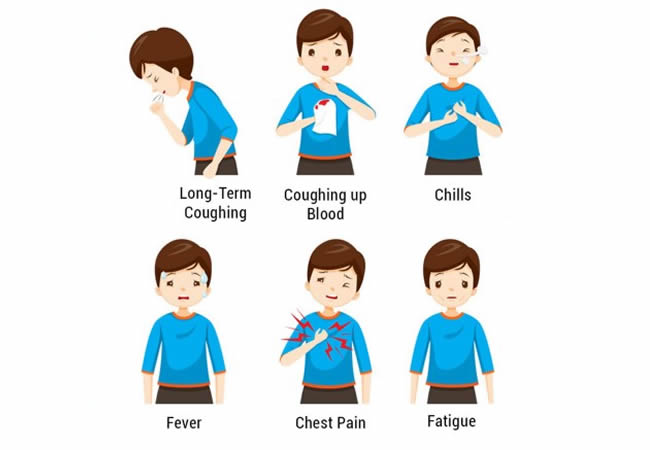[ad_1]
Angela Onwuzoo
A medical researcher and immediate past Director-General, Nigerian Institute of Medical Research, Yaba, Lagos, Prof. Innocent Ujah, has cautioned Nigerians against presenting late to the hospital for tuberculosis treatment, noting that late presentation complicates the management of the health condition.
The researcher urged those with the health condition to seek treatment early.
Prof. Ujah, who identified poor health-seeking behaviour and poverty as some of the factors fueling TB cases in Nigeria, warned TB patients against seeking help from unorthodox places.
Speaking in an interview with PUNCH Healthwise, the researcher said late presentation creates problems in the treatment of TB.
The former Nigerian Medical Association President urged TB patients to stop going to native doctors and prayer houses for treatment.
According to him, visiting such places rather than seeking proper medical attention comes with a lot of risks and possible death, especially for a chronic disease like TB.
The World Health Organisation says TB is caused by bacteria (Mycobacterium tuberculosis) that most often affect the lungs.
“TB is spread from person to person through the air. When people with lung TB cough, sneeze, or spit, they propel the TB germs into the air. A person needs to inhale only a few of these germs to become infected,” WHO noted.
Prof. Ujah said, “TB patients should stop going to native doctors and prayer houses for treatment.
“Poverty and our health-seeking behaviour are some of the factors increasing TB cases in the country because before we go to the hospital, we would have gone to native doctors, prayer houses, and traditional healers.
“Then, by the time we are reporting to the hospital, it becomes very late. Not only that, it becomes difficult to cure the disease.
“So, TB patients should go to the hospital to seek medical attention and get properly treated. TB is treatable and curable so they should go to the hospital for appropriate treatment.”
According to the 2017 Global TB Report, Nigeria is among the 14 high burden countries for TB, TB/HIV, and Multidrug-resistant TB (MDR/TB), ranking 7th among the 30 high TB burden countries and 2nd in Africa.
Prof Ujah noted that the report shows that TB kills 18 Nigerians every hour. 47 Nigerians develop active TB, seven of which are children, every hour.
“The complications will be more with late presentation. The treatment modalities will not be good and the death rate will be more. Everything late in TB will create a serious problem,” he added.
The Minister of Health Dr. Osagie Ehanire during the launch of the compendium of best practices for tuberculosis control in Nigeria in Abuja on May 2022, said despite significant progress in the past three years in the fight to end the tuberculosis epidemic,“ we know that there are still over 200,000 new TB infections occurring every year among us, yet to be detected and enrolled in treatment.”
“There are also significant numbers of TB deaths annually. We know that we must step up our commitment and invest strategically across the nation, to scale up best practices,” he said.
According to the WHO, many people have undetected TB for too long, warning that late detection of TB increases their risk of transmitting the disease to others.
Progress in controlling TB and mitigating its consequences can be expedited through early diagnosis and treatment, the UN health agency said.
Prof Ujak also urged TB patients to always adhere to the treatment guideline while calling on mothers to vaccinate their newborns against the disease by giving them Bacille Calmette-Guérin popularly known as the BCG vaccine.
Copyright PUNCH
All rights reserved. This material, and other digital content on this website, may not be reproduced, published, broadcast, rewritten or redistributed in whole or in part without prior express written permission from PUNCH.
Contact: [email protected]
[ad_2]
Source link


